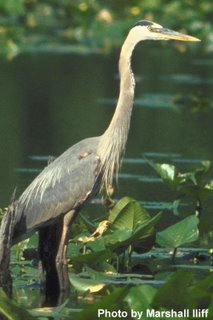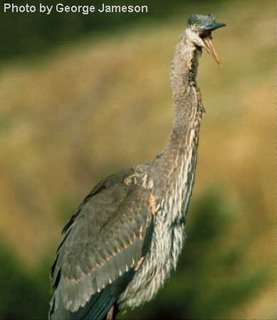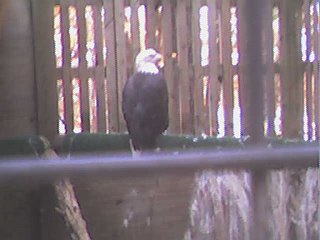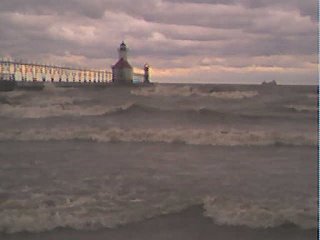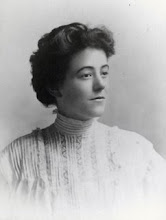Today would have been my father’s 100th
birthday. If he were here – and who’s to say that he isn’t – he’d love turning
100, because in spite life socking it to him too many times, he was an
optimist. “The Impossible Dream” from Man of La Mancha was one of his favorite
songs.
He was born in a
little town on the Illinois River where his father’s German family had settled.
When he was 6 months old, they moved to Niles, Michigan, just across the state
line from South Bend, back to his mother’s hometown, and he lived in Berrien
County for the rest of his life, save three years in WWII. He considered
himself a Niles native, though, and was an abiding Notre Dame fan to the great
consternation of his offspring, who preferred Michigan and Michigan State. While Knute Rockne was making his legacy in
the 1920s, radio was the hot new medium, and the ND Fighting Irish became the
first ‘America’s team’. The school
didn’t grant exclusive broadcast rights for its football games, so stations
from coast to coast came to South Bend.
Guys like my dad could share in the glory.
He was a golf caddy in his teen years, and he played the
game from that time on, even as a serviceman in England during the Second World
War. There he somehow got to play at a course in Henley-on-Thames. He had kept a souvenir brochure of the town
with his WWII memorabilia, and the town came up quite a bit in his WWII canon. Usually with the Henley golf story, he’d
bring up the time he and a buddy wandered onto the grounds of Windsor Castle
whereupon a cordial Guard showed them the way out. Dad was never a jerk, so his encounters with
the British and Europeans during the war were recalled with delight.
There may have been a country club in Niles – I don’t
know for sure – but Dad also caddied for Chicago gangsters from time to
time. I remember one caddying story
featuring a hoodlum: “Hey, kid, how d’ya
get to Dow-a-guy-ack?” (Dowagiac, a town in neighboring Cass County - Natives
pronounce it Do- wa’-jack.) He wanted
Dad to accompany him and serve up woods and irons. I think Dad was cautious
about traveling anywhere with one of Capone’s wise guys, so he gave directions
and received a generous tip anyway. (A
hood with a heart of gold) Berrien County was an open territory for rival gangsters,
The Purple Gang from Detroit and Capone’s empire from Chicago, so there were mobsters
everywhere while the Eighteenth Amendment was in effect. (and afterward, as the criminal networks
proved useful for other endeavors.)
Another job he had was to change the marquee of the Niles
movie theater and to carry the heavy film reels up to the projection
booth. For this he may have received a
small wage- probably not, because it was the early Depression years - but was
allowed to watch the movies gratis. The
Marx Brothers were an absolute favorite, W. C. Fields, Laurel and Hardy, Buster
Keaton. He and my mother saw the later
Marx Brothers oeuvre together. Dad had a
terrific memory and could quote Groucho for just about any occasion.
When he was a little kid, he ventured outside for a walk
and took a nap in a field accompanied by the family dog, a Collie, if I
remember. His mother found both of
them, the dog keeping watch and Dad sound asleep. She was nominated for a Carnegie medal for
rescuing another of her sons from a well he’d tumbled into, but because it was
her child, she didn’t qualify for the honor.
Grandma Weiss was Irish.
Totally. Niles had an Irish section, the 4th Ward, removed
from the local patricians. Because they
stuck together, Dad absorbed the Irish-American cultural point of view, and his
innate story-telling ability was enhanced by listening to tales of the
O’Connell clan, McGee, who “didn’t have a leg under him” most of the time, the
Slatterys, Aunt Mary and Red Bill.
Dad’s mother’s
cousin, Billy Casey, ran a saloon there, and he prospered. His house still stands, a gothic oddity probably built in the 1880s. He was generous to my grandmother and to my
dad, plying him with ham sandwiches and pie and a little money on
occasion. Billy gained a bit of
posthumous recognition in a biography of Niles native and legendary
sportswriter, Ring Lardner. Lardner’s aunts
received a weekly bottle of spirits delivered to their home by Billy Casey,
courtesy of their famous nephew. Mom and
Dad lived in Ring Lardner’s house when they were first married, and the aunts
were their landlords. I suppose Billy
Casey may have arranged for them to have that apartment.
In 1918 dad’s grandfather, Richard O’Connell, who had
come to Niles via Chicago from County Kerry in 1870, died in the flu epidemic.
The family was away for an extended period visiting relatives in Illinois, and
dad’s mother didn’t find out about her father’s death until months after it
happened. They had been estranged
because of my grandmother’s marriage to a German Lutheran. When she returned to Niles, she discovered
that all of his property had been divided among the shirttail relatives,
because those good Irish Catholics all had lied and told the probate court that
she, her father’s only child, was dead.
Her lawyer petitioned to reopen the file, and she was awarded her due.
Dad remembered sitting in the posh anteroom of the lawyer’s office,
wood-paneled and upholstered, waiting for his mother.
Someday I’ll have
to order the probate file. Billy Casey
was one of the people who told the court my grandmother was dead. Dad always thought that Billy’s generosity
may have been partly out of guilt.
About 1928 Dad and his brother Gordon both won the
spelling bee in their respective schools, Dad in the junior high and Gordon in high
school, and the newspaper, The Niles Daily Star, wrote a little story about
them. He and his two brothers were
plenty smart, quick witted and of good cheer.
Their father died in 1928 of a probable brain tumor, and by 1930, they
lost their house and eventually all the contents, which had been placed in
storage, including first editions of Charles Dickens. As I relate these vignettes, I can’t say for
sure whether the books were first editions, for example, or just really nice
old books, but their loss impacted Dad and his mother both because they each
had a way with words.
Dad didn’t relay his history to solicit sympathy or to
shame us with tales of his hardscrabble experiences. The Great Depression was a Major Subject for
people in my father’s generation as most of my contemporaries can relate. I probably know as much about it as I do the
60s. Dad’s main motivation I think, aside
from an opportunity to tell a story, was to pay tribute to his mother, who was
a brick. And also to zing a few
hypocrites who did absolutely nothing to aid his family, even though it was in
their power to do so. Both he and my
mother had a hard time, but they weren’t bitter or nasty. Quite the opposite. They tried to be to other people what they
wished people had been to them.
After they lost the house, Dad found a job – lucky, that
– working in a hotel restaurant in Niles where he made a dollar a day plus room
and board. His mother went to live with
her Aunt Mary O’Connell, who had quite a lot of money for those days, but who
was close with a dollar, having been a maid on Boston’s Beacon Hill before
coming to Michigan. She lived to be 95,
and her estate was worth $250,000. in 1935.
For a time Dad stayed with her, too, and every morning she went to early
mass at St. Mary’s Catholic Church. Many
of those days she’d hit my father up for the offering. “Say, Nor, you wouldn’t happen to have a dime
now would you?” One had to give the
church silver coins, and dimes were still silver in the 30s.
On one of our trips to visit the landmarks of Dad’s youth
in Niles, we went into St. Mary’s. I’m
not sure he’d ever actually been inside, but his Irish relatives (all except
his mother, that is) were buried in the Catholic cemetery nearby. My sister started looking over the stained glass
windows and discovered that three of the large panels had been donated by Dad’
s family, his grandparents, the O’Connells, his great grandparents, the Slatterys,
and by good, old Aunt Mary. He was so
touched by that serendipitous discovery, even though the Church had shunned his
mother for raising little pagans outside the sway of Catholicism.
Grandma eventually went to work for the Tyler family in
Niles. They were pretty near the top of
the heap socially and materially. She
was their private secretary and Girl Friday. I think she may have acted as
housekeeper for them, too, and managed their household when they went to
Florida for the winter. I remember they
came to her funeral in 1964 in a chauffeured limousine.
Dad and Mother met in 1935 and were married in June,
1936. She was in Benton Harbor, so they
courted up and down US-31 in Dad’s Nash automobile. They went to the House of David, the local
movie houses and Jean Klock Park. I
think their first date may have been there.
Benton Harbor was the happenin’ town, more so than Niles or St. Joe,
which were straight-laced and sober, towns which nonetheless had a fleet of rum
runners during Prohibition.
At boot camp at Ft. Leonard Wood, Missouri, at the initial
assembly of the men, the officer in charge announced, “One of you has
experience as a cook. Don’t make me go
back upstairs to find out who you are. ”
So Dad went to cook and baker’s school and was assigned to a medical
collecting company whose commanding officer was a physician from Philadelphia
whom Dad recalled with particular fondness.
He became fast friends with two company medics from Kentucky and
Indiana, and they stayed in contact for the rest of their lives. On the night of Dad’s wake in 1997, his
friend from Indiana happened to call the house, not knowing that Dad had
died. My brother talked to him for a
long while. That’s the last link we had
to his WWII interlude.
I might be able to write a book containing all Dad’s war
stories I heard again and again through the years. The sad thing is, I didn’t get him to write
them down himself. The War was the
signal experience of his life, more even than marrying and having a family,
perhaps – at least equal to those events. War does that to people. It usurps other experiences and persists in a
person’s mind and heart.
One of his best stories concerned a General who’d broken
an ankle, probably not in the line of duty.
Dad and another medic transported him through a field somewhere in
Holland in pitch darkness, lost their bearings and fell, General in tow, into a
garbage pit. The next day they went to
pay their respects, and the General said, “Some lousy sons-of-bitches dropped
me into a garbage dump last night, and when I find out who they are, I’ll have
their asses.”
His company went into Normandy at Omaha Beach on D+4 (four
days after D-Day). He didn’t ever talk
about the carnage, but he doubtless saw plenty.
After Paris was liberated in August, 1944, Dad and his company went
there on a pass, and someone took their picture in front of the Arc de
Triomphe alongside a Parisian who’d
insisted on acting as their host. In
Dad’s experiences the French were wonderful to the “Yanks”, and he always
wanted to go back with my mother. Of
course, they would have had to swim, because my mother would not fly.
Back home Dad stayed in the food business. He worked in,
managed and owned several restaurants and ended up running the food service
department at Mercy Hospital in Benton Harbor. He really loved that job, I think. The people who worked at the hospital were a
community, corny as that sounds.
Dad and mother
joined the Twin City Players, an amateur theatre troupe that’s still going
strong today. Around the mid-50s Dad was
president of the group, and they’d have meetings at our house. I remember the names of some of the other
Players: Babe and Virgil Lewis, Marian
Tiffiny, Gladys and Henry Johnson, Keitha Dasse, Marilyn Birner, Roy and Muriel
Mulhagen, my mother’s sister, Donna Anderson … I don’t know how tight a group they were,
but from where I sat, it sure looked like they were having great fun. My mother was a pretty darned good actress. Dad knew how to run things and make it
fun. Back when I was a kid, adults were
allowed to engage in adult activities, and the kids could sit quietly on the
sidelines and learn something or else stay home. I certainly participated in a boatload of
activities, but the folks had their own time, as well.
In the days following Dad’s death when we were planning
the funeral, my brother heard the poem “Shifting the Sun” by Diana der-Hovanessian
on Garrison Keillor’s radio show, The Writer’s Almanac. It ends thus:
“When your father dies, say the Armenians,
your sun shifts forever
and you walk in his light.”
I was spoiled being raised in a home where the man of the
house was a true gent. He never
complained about anything to speak of, was enthusiastic about the family
without being overbearing, was a great chef and great wit, and he gave a
damn. He always showed up, as the saying
goes. Maybe the Greatest Generation
business is a bit over the top, but it’s a generation that I think that we
could learn from. Dad had insight into
people and wisdom about life. How I miss
it and him every day.

